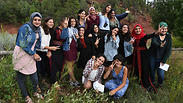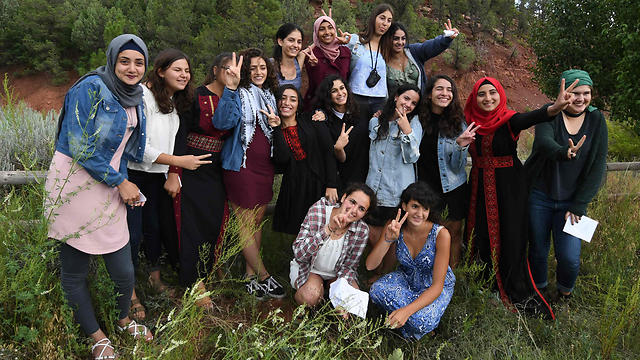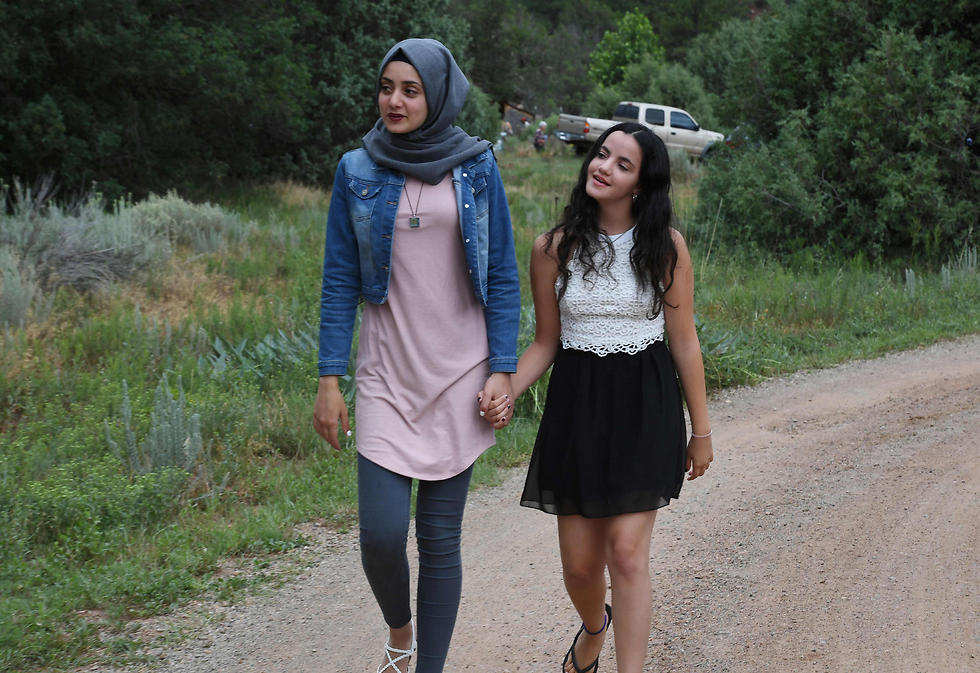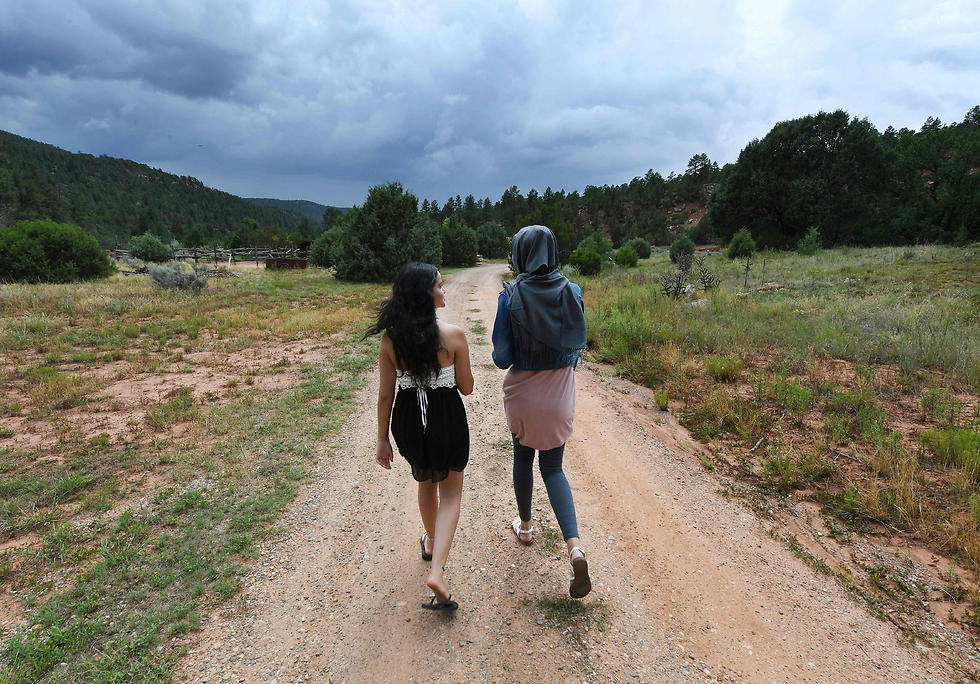
But it wasn't until after the uprising that her mistrust was most shockingly vindicated as she witnessed Israeli troops shooting dead her Palestinian neighbor as he smoked a cigarette on his balcony.
"It's flashbacks I can remember... the ambulance, the way they took him down the building," the 21-year-old tells AFP, as if the intervening decade has suddenly melted away.
"We weren't allowed into the streets. We were afraid they would kill us. It's something I will always remember—it's so painful."
Some years later, her neighbor's bereaved daughter introduced Masri to "Creativity for Peace," an organization in Santa Fe, New Mexico, that brings together Palestinian and Jewish Israeli girls in a bid to bridge the emotional fault lines created by 70 years of conflict.
Half a world away from the corridors of the United Nations, they get together at a ranch in the timbered foothills of the southern Rocky Mountains to hear for the first time the stories of enemies they have grown up learning to hate.
Since 2003 more than 200 girls of ages 15 to 17 have participated in the Creativity for Peace camp, where Masri has returned this year as a "young leader" after taking part in 2013.
It was at the camp that she befriended Naama Shlomy, a Jewish Israeli who lives some 60 miles (100 kilometers) south of Nablus, on the border with Gaza.
Trauma
The girls share their experiences of the Arab-Israeli conflict as part of a total of 40 hours of dialogue founded on the notion that "an enemy is a person whose story you haven't heard."
Shlomy was three years old when her home town of Sderot was targeted by Hamas's Qassam artillery rockets, the first of an estimated 8-10,000 to rain down on Israel from Gaza since 2002.
Fewer than 30 Israeli civilians have been killed but the psychological trauma has been profound.
Almost half of Sderot middle schoolers surveyed for the Journal of Adolescent Health in 2008 showed signs of post-traumatic stress disorder, while high levels of miscarriage and depression are a fact of daily life.
"It's horrible, I can't describe it. It's a trauma that's in me. I'll need to deal with it for the rest of my life," Shlomy, 19, tells AFP at an open day as the three-week summer camp.
When Hamas launches a rocket, an alarm sounds and the people of Sderot know they have 15 seconds to get to the nearest shelter, day or night.
"Each time you need to drop everything and go to the shelter. It's just so stressful to keep worrying about your family all the time, and yourself," says Shlomy.
Every year up to 20 girls—half Jewish Israelis and half Palestinians from Israel, the West Bank and Gaza—are invited to New Mexico by Creativity for Peace, which is funded privately, notwithstanding a 2015 US government grant.
The girls share their experiences of the Arab-Israeli conflict as part of a total of 40 hours of dialogue founded on the notion that "an enemy is a person whose story you haven't heard."
Using English as their common language, they go shopping, visit the movies, divvy up chores, share bedrooms and attend art therapy classes together.
Almost all have lost family and friends to violence and most will never have spoken to members of the opposite side before.
Baby steps
"We teach our young women that both sides are right and both sides are wrong. Their job is not to debate politics or go over history, but more to understand one another and find common ground," says Dottie Indyke, executive director for the last 11 years.
The fact that both sides have suffered often comes as a revelation to the girls, although resentment can still run deep.
Masri points to the 400,000 illegal Israeli settlers in the West Bank, and the numerous checkpoints that have choked Nablus, a thriving trading post since the days of the seventh century Umayyad Caliphate that now finds itself in penury.
"I understand that we both suffered. It didn't change my mind towards the other side. I feel them, understand their stories, but that doesn't mean I should change my perspective, that they are not doing something wrong to my country," she tells AFP.
But she is persevering in the process—even turning around her initially unsupportive family—because she believes in the intrinsic value of dialogue as driver of change.
"Maybe we are not resolving the conflict but it's a long process, it's about trust," she says. "As long as we trust the other side many things will start to happen."
Perhaps the toughest part comes after the camp, when the girls are asked to go back to their communities as "peacemakers" who can be an example of compassion, friendship, and courage.
"Each girl can go to her family and change the way they see things, then they can change their communities," says Sana Zahalka, 17, another young leader who first came to the camp in 2015.
"It's like baby steps. But they all lead to this amazing big step."



















